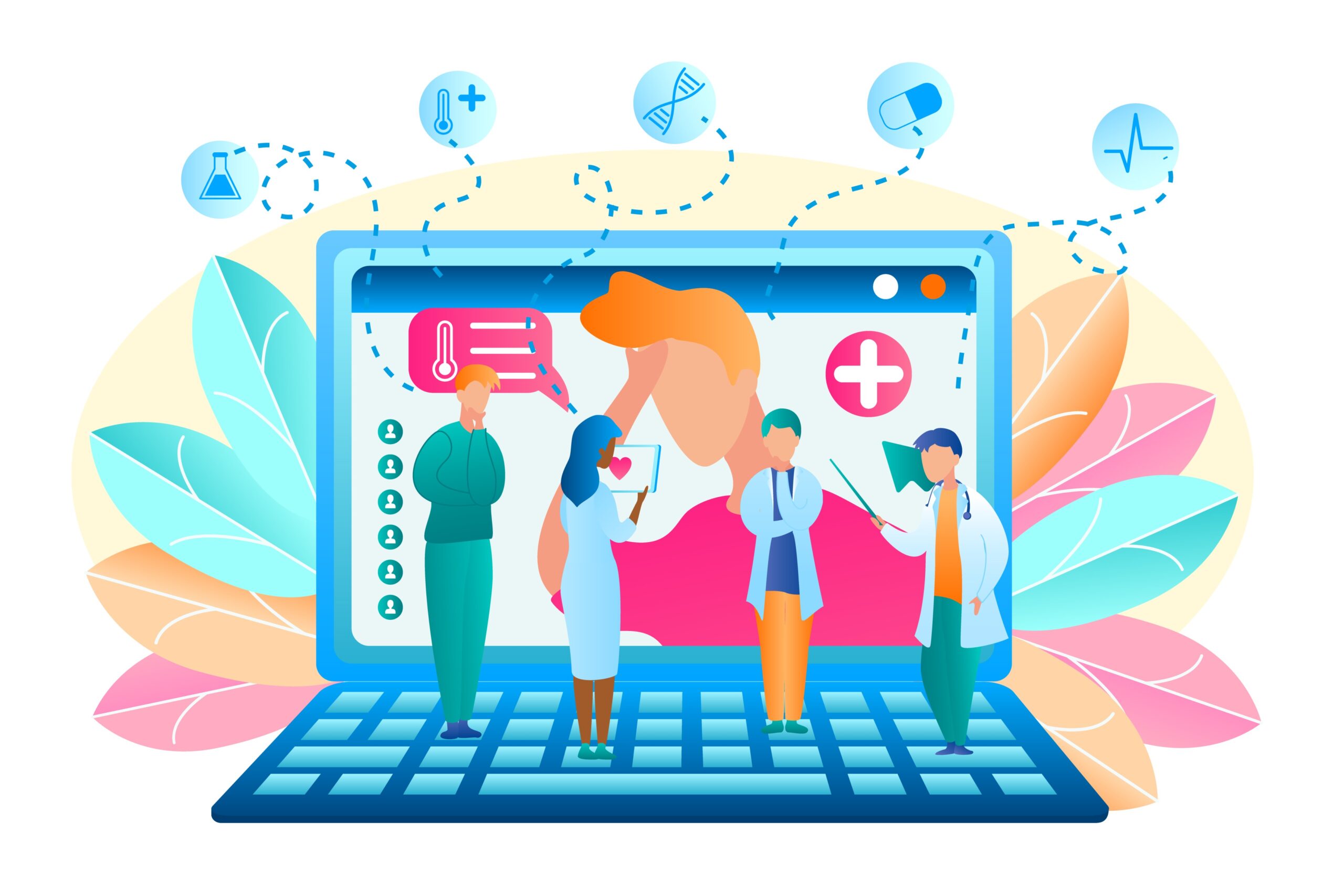The healthcare industry is experiencing a dramatic shift toward digital marketing strategies as institutions seek to connect with patients in an increasingly online world. However, the unique challenges facing healthcare providers, from strict regulatory compliance to specialized audience targeting, have made outsourcing digital marketing services not just an option but a strategic necessity for many institutions.
The healthcare industry increasingly outsources digital marketing to ensure HIPAA compliance and improve patient engagement. By partnering with specialized agencies, providers gain access to SEO, content marketing, and advanced analytics expertise. This shift, driving a 9% CAGR globally, helps optimize resources, capture more leads, and achieve sustainable growth.
Table of Contents
The Growing Healthcare Digital Marketing Outsourcing Market
The global healthcare digital marketing outsourcing market is experiencing unprecedented growth, climbing from $8.9 billion in 2024 to an anticipated $16.3 billion by 2031. This remarkable expansion reflects the increasing recognition among healthcare institutions that specialized external expertise is essential for navigating the complex digital marketing landscape.
The market is accelerating with a compound annual growth rate of 9% during the forecast period from 2024 to 2031, driven by healthcare organizations’ need to balance marketing effectiveness with regulatory compliance. In the United States specifically, the market is expected to grow at an even more aggressive CAGR of 9.7% from 2024 to 2030, indicating particularly strong domestic demand for outsourced digital marketing services.
Compliance Challenges Drive Outsourcing Decisions
Healthcare institutions face unique regulatory hurdles that set them apart from other industries. The Health Insurance Portability and Accountability Act (HIPAA) creates stringent requirements for handling protected health information, making traditional marketing approaches potentially risky. HIPAA and other laws and mandates have required adherence to strict privacy rules since 1996, making it more difficult for healthcare services to use patient information for marketing purposes.
On March 18, 2024, the US Department of Health & Human Services updated its guidance on online tracking technologies and HIPAA compliance, reinforcing the government’s commitment to enforcing strict compliance standards. This regulatory environment creates a compelling case for outsourcing to agencies that specialize in HIPAA-compliant marketing strategies.
The complexity of maintaining compliance while executing effective marketing campaigns means that a dental practice SEO will be different as compared to general medical practices or specialized clinics, each requiring tailored approaches that account for their specific patient populations, treatment types, and regulatory considerations. Specialized marketing agencies understand these nuances and can develop compliant strategies that still drive patient acquisition and engagement.
Cost Efficiency and Resource Optimization
Acquiring high-quality leads from digital marketing channels frees up, on average, up to 40% of the representative’s time and associated expenses. This significant efficiency gain allows healthcare institutions to reallocate internal resources toward patient care and clinical operations rather than marketing activities.
Healthcare providers increasingly recognize that building in-house digital marketing capabilities requires substantial investments in talent, technology, and ongoing training. Healthcare players have increased their marketing budgets by up to 7% of their annual revenue in 2025, but rather than expanding internal teams, many are choosing to partner with specialized agencies that can deliver superior results while maintaining cost control.
Specialized Expertise and Technology Access
The healthcare digital marketing landscape requires expertise across multiple specialized areas, from search engine optimization for medical practices to content marketing that educates patients while remaining clinically accurate. Pay-per-click advertising was the largest revenue generating service type in 2023, while content marketing is the most lucrative service type segment registering the fastest growth.
Outsourcing partners bring deep knowledge of healthcare-specific marketing technologies, patient journey mapping, and conversion optimization strategies. They understand the unique considerations involved in marketing different medical specialties and can develop campaigns that resonate with specific patient demographics while maintaining professional credibility.
Enhanced Patient Engagement Through Digital Channels
The average open rate for healthcare-related email campaigns is 41.23%, making it one of the highest-performing industries in terms of email engagement. This exceptional engagement rate demonstrates the effectiveness of well-executed healthcare marketing campaigns, but achieving these results requires sophisticated understanding of patient communication preferences and regulatory boundaries.
Healthcare marketing agencies leverage advanced analytics and patient behavior data to create personalized experiences that drive engagement without compromising privacy. They understand how to craft messages that build trust and encourage patients to take action, whether scheduling appointments, following treatment recommendations, or engaging in preventive care.
Future Outlook and Strategic Considerations
A survey among healthcare marketers conducted in 2024 showed that 47.2% of respondents planned to increase their budgets compared to the previous year, indicating continued investment in digital marketing capabilities. However, the complexity of healthcare marketing suggests that much of this increased spending will flow toward outsourced services rather than internal capacity building.
Healthcare institutions considering outsourcing should evaluate potential partners based on their healthcare-specific experience, compliance track record, and ability to demonstrate measurable results. The most successful partnerships involve agencies that understand the unique patient acquisition challenges facing different types of healthcare providers and can adapt their strategies accordingly.
As digital marketing continues to evolve with new technologies like artificial intelligence and advanced automation, healthcare institutions that partner with specialized agencies will be better positioned to adopt these innovations while maintaining regulatory compliance and patient trust. The outsourcing trend represents not just a cost-saving measure, but a strategic approach to achieving sustainable growth in an increasingly competitive healthcare marketplace.

Andrej Fedek is the creator and the one-person owner of two blogs: InterCool Studio and CareersMomentum. As an experienced marketer, he is driven by turning leads into customers with White Hat SEO techniques. Besides being a boss, he is a real team player with a great sense of equality.
